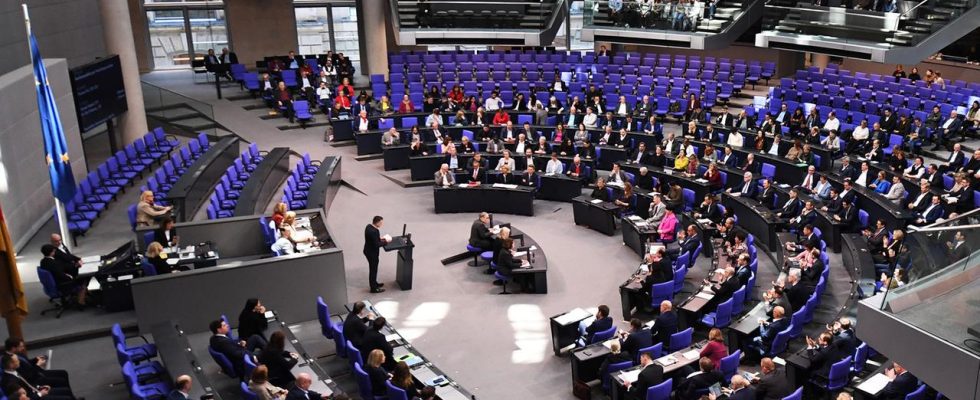The Bundestag has approved a relief package for companies worth around three billion euros. It is uncertain whether the Federal Council will also agree on March 22nd. Because the law could fail because of the Union.
After a change to the relief package for companies, the Bundestag passed the “Growth Opportunities Act” in a slimmed-down form. The law provides relief for companies amounting to 3.2 billion euros.
377 MPs voted for the law, 267 against. There was one abstention. The traffic light factions of the SPD, Greens and FDP had announced that they would agree to the recommendation of the mediation committee of the Bundestag and Bundesrat. He reached an agreement on Wednesday – but without the consent of the Union.
Union remains in blockade
Before the vote, FDP parliamentary group leader Christian Dürr appealed to the Union to approve the amended law: “We now need signals to relieve the tax burden on the German economy.” The Growth Opportunities Act is a first step towards this.
Union parliamentary group leader Thorsten Frei, however, defended the rejection of the CDU and CSU: “We say no to a decision that purports to relieve the burden on the German economy, although it wants to burden another part of the economy with an additional 450 million euros,” he said Looking at the cancellation of the agricultural diesel benefit for agriculture.
Federal Council approval uncertain
The SPD MP Michael Schrodi criticized that the Union wanted to hit the government with its rejection. “But in doing so, they affect the economy, pensioners and ultimately the entire country.” It is now unclear whether the package will receive approval in the Federal Council on March 22nd.
Business associations have recently sharply criticized the blockade of the Union. The Federal Council blocked the law with the argument that states and municipalities would have to shoulder a large part of the costs and tax losses. In the negotiations, the negotiating partners then reduced the volume of relief from the previously planned 7 billion euros annually to 3.2 billion.
Hans-Joachim Vieweger, ARD Berlin, tagesschau, February 23, 2024 12:45 p.m

